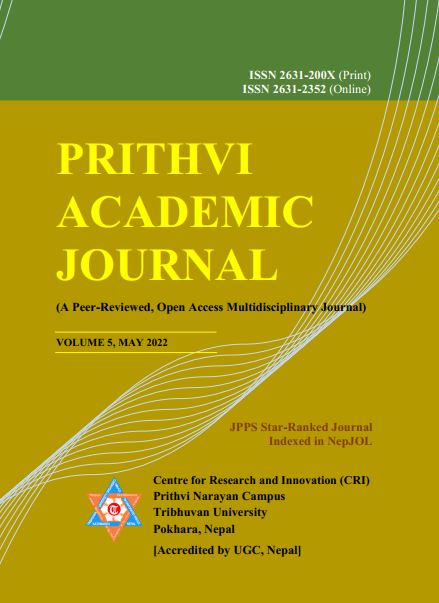Homi K. Bhabha's Third Space Theory and Cultural Identity Today: A Critical Review
DOI:
https://doi.org/10.3126/paj.v5i1.45049Keywords:
Postcoloniality, third space, cultural identity, hybridity, neocolonialismAbstract
Homi K. Bhabha proposes the interstitial space of cultural encounter in which the colonizer and the colonized negotiate, producing hybridity in culture. This type of culture subverts colonial domination by deconstructing essentialist identity and binary opposition of the colonizer and colonized or the East and the West. In this case, his in-between third space resists colonial oppression largely depending on the analysis of colonial discourse and cultural identity formation of the colonized people. However, lack of concern to the political and economic exploitation of the colonizers and the material condition of unequal access to resources and opportunities make his third space a cultural project that helps for mental and psychological liberation only. Today, the First World countries and the former colonizers manipulate a negotiation in the intercultural and international third space created by World Trade Organization (WTO) and Social Media Networks (SMNs) in their favour. Thus, the main objective of this article is to review his notion of third space in relation to its limitations in resisting colonial and neocolonial domination that is caused by the exclusion of the material condition and human relationship.
Downloads
Downloads
Published
How to Cite
Issue
Section
License
Copyright (c) 2022 Authors and Centre for Research and Innovation (CRI)

This work is licensed under a Creative Commons Attribution 4.0 International License.




